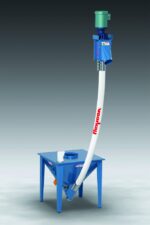McCain Foods ploughing on with Canterbury Plains growers
When McCain Foods first opened its new Timaru Potato plant in 1994, the company was focused on forging strong relationships with New Zealand growers. McCain has always underpinned its operations by growing green and local. Twenty-six years later, and this mantra is stronger than ever. The 550 million potatoes processed through the Timaru plant each year are harvested from rich New Zealand soils, including the Canterbury region, which Daniel Lovett – of Lovett Family Farms – calls home. Daniel’s parents, Greg and Joanne, began supplying potatoes to McCain in 2000. Two decades later, Daniel, his wife Emily and their children work alongside Greg and Joanne to continue the relationship – supplying delicious chips and French fries to their fellow Kiwis. Speaking about the challenges the farm has encountered over the years, Mr Lovett explained how the longstanding partnership the family formed with McCain has benefitted their farming operations. “We’ve encountered a vast amount of issues, from weather extremes, seedline issues, fertilizer trials, soil borne diseases, over/under production and the potato psyllid. But we have always been able to work through those problems with McCain’s team.,” Mr Lovett said. “McCain brought Innovator potatoes to us, which is a potato variety which is significantly more resistant to soil borne disease. It grows in fewer days than other varieties, resulting in less spray and risk to the elements.” “The innovator potato now makes up 50 per cent of what we produce. The research, and the expertise of McCain people, particularly in seed development, has seen us increase yield and profitability for our farming operation.” The McCain team’s relationship with Lovett Family Farms has also led to a streamlined supply process. “McCain approached us and another grower in 2010 to build a shed on farm to store potatoes on behalf of McCain,” Mr Lovett […]










